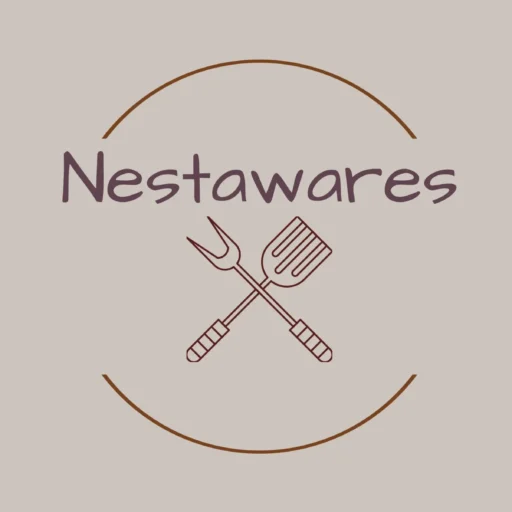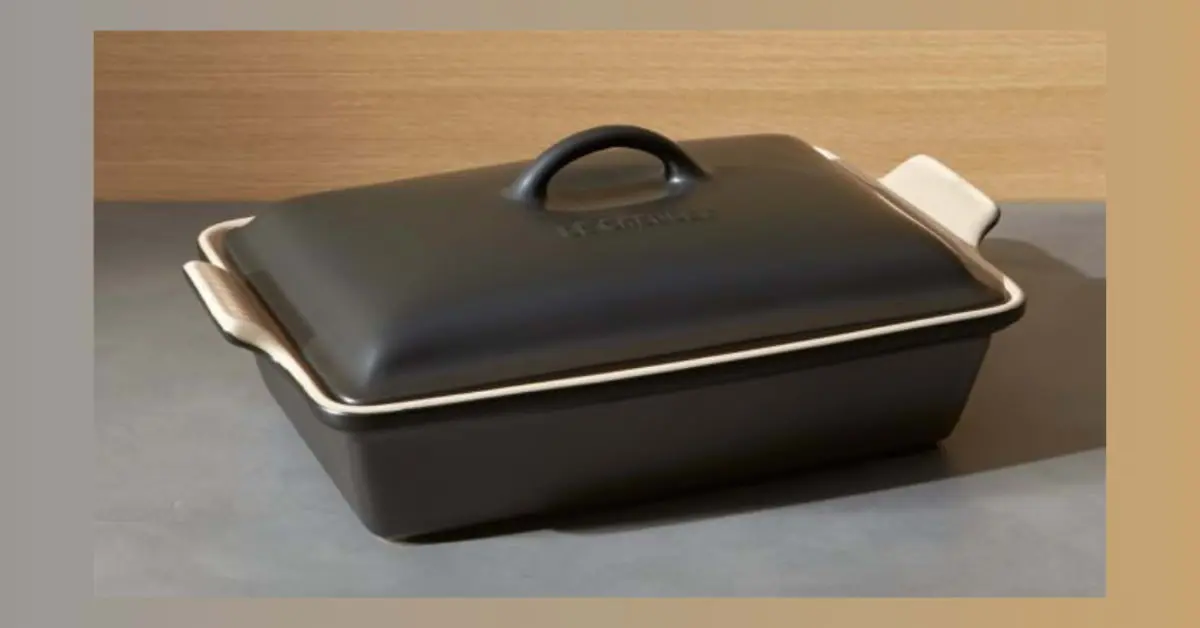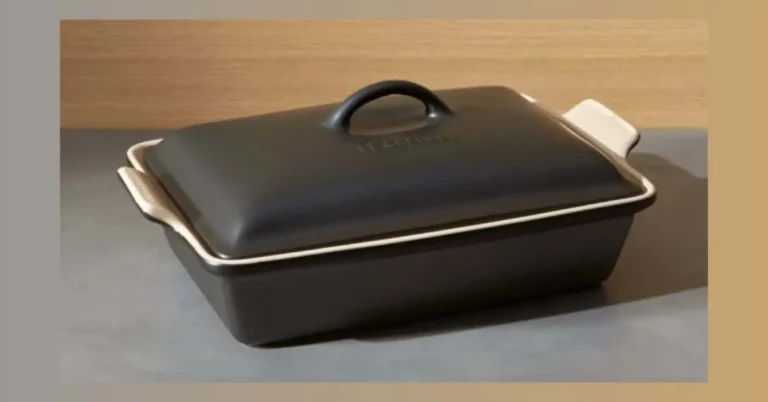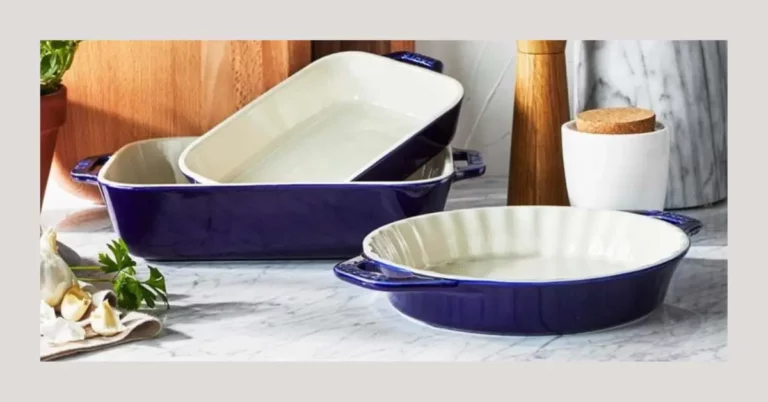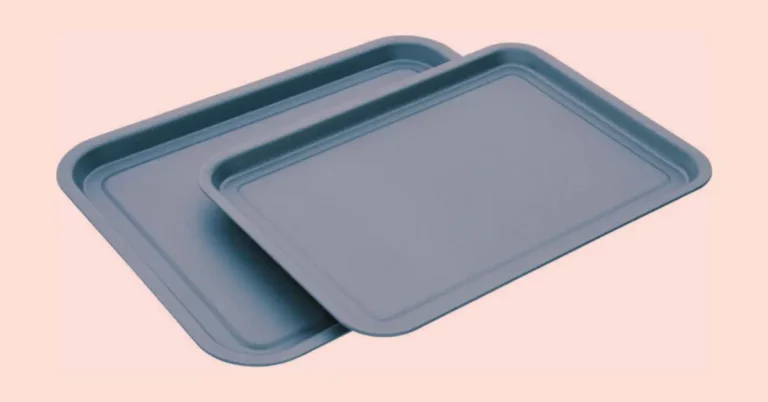Disclosure: As an Amazon associate, I may earn from qualifying purchases
This post is for those who want to know more on stoneware bakeware, and have burning questions that have piqued their curiosity. Whether you’re a seasoned baker or a kitchen enthusiast, we’re here to provide clarity on the wonders and advantages of baking with stoneware.
In this article, we will address frequently asked questions, ranging from the quality and best brands of stoneware baking dishes to comparisons with other materials and insights into professional usage.
First and foremost, you may be wondering if it’s good to bake in stoneware baking dishes. Well, you’d be surprised to know that stoneware boasts remarkable heat retention and even heat distribution, resulting in perfectly baked treats with crispy edges and tender centers.
Its natural non-stick surface allows for easy food release and simple cleanup, making it a favorite among home bakers and professionals alike.
When it comes to the best brands available, we’ve got you covered. We’ll showcase renowned brands that have mastered the art of stoneware craftsmanship, ensuring exceptional quality and durability.
While stoneware offers numerous benefits, it’s important to consider potential disadvantages. We’ll delve into factors like weight and fragility, helping you make informed decisions about incorporating stoneware into your baking routine.
We also talk about how safe stoneware is, to be used in the kitchen. And how one can clean this type of bakeware without damaging them.
By understanding the challenges, you can adapt your techniques and maximize the advantages of this exceptional material.
So, whether you’re a baking enthusiast seeking to upgrade your bakeware collection or simply curious about the wonders of stoneware, this article will serve as your go-to resource.
We’re here to answer your frequently asked questions, provide friendly advice, and foster a deeper appreciation for the joys of baking with stoneware bakeware. Let’s dive in!
In this article, we will address frequently asked questions, ranging from the quality and best brands of stoneware baking dishes to comparisons with other materials and insights into professional usage.
First and foremost, you may be wondering if it’s good to bake in stoneware baking dishes. Well, you’d be surprised to know that stoneware boasts remarkable heat retention and even heat distribution, resulting in perfectly baked treats with crispy edges and tender centers.
Its natural non-stick surface allows for easy food release and simple cleanup, making it a favorite among home bakers and professionals alike.
When it comes to the best brands available, we’ve got you covered. We’ll showcase renowned brands that have mastered the art of stoneware craftsmanship, ensuring exceptional quality and durability.
While stoneware offers numerous benefits, it’s important to consider potential disadvantages. We’ll delve into factors like weight and fragility, helping you make informed decisions about incorporating stoneware into your baking routine.
We also talk about how safe stoneware is, to be used in the kitchen. And how one can clean this type of bakeware without damaging them.
By understanding the challenges, you can adapt your techniques and maximize the advantages of this exceptional material.
So, whether you’re a baking enthusiast seeking to upgrade your bakeware collection or simply curious about the wonders of stoneware, this article will serve as your go-to resource.
We’re here to answer your frequently asked questions, provide friendly advice, and foster a deeper appreciation for the joys of baking with stoneware bakeware. Let’s dive in!
Frequently Asked Questions
How can you tell if stoneware is food safe?
If you want to determine whether your stoneware is food-safe, there are a few things you can look for:
If you are unsure whether your tools are food-safe, you can contact the manufacturer or retailer for more information.
It’s also a good idea to follow the manufacturer’s instructions for use and care, including avoiding extreme temperature changes and inspecting your stoneware regularly for damage.
- FDA compliance: Cookware that is labeled as “food-safe” is typically compliant with the U.S. Food and Drug Administration’s (FDA) regulations for food contact materials. You can look for labeling on your stoneware that indicates it is food-safe.
- Lead-free: Look for kitchen utensils that are labeled as lead-free, as lead can be toxic and may leach into food from certain types of stoneware. If they are not labeled as lead-free, you can use a lead test kit to determine whether it contains lead.
- Quality materials: Bakeware that is made from high-quality materials, such as clay or ceramic, is more likely to be food-safe. Check the product description or packaging to see what materials your stoneware is made from.
- Durability: Stoneware that is well-made and sturdy is less likely to leach chemicals into food. Look for pieces that are free from cracks, chips, and other damage that could compromise its safety.
If you are unsure whether your tools are food-safe, you can contact the manufacturer or retailer for more information.
It’s also a good idea to follow the manufacturer’s instructions for use and care, including avoiding extreme temperature changes and inspecting your stoneware regularly for damage.
Do all stoneware dishes scratch?
Like all types of dishes, ceramic baking dishes can scratch if they come into contact with hard or sharp objects. However, they are typically more resistant to scratching than some other types of dishes, such as glass or ceramic.
That being said, they can still be scratched if they are not handled and cared for properly. To minimize the risk of scratching, it’s important to avoid using metal utensils on dishes, as these can leave scratches or marks on the surface.
Instead, use utensils made from wood, silicone, or other non-abrasive materials.
It’s also important to avoid stacking dishes on top of each other, as this can cause scratches or chips. Instead, store your dishes separately, with a layer of padding or a dish towel between each dish.
Finally, be sure to follow the manufacturer’s instructions for use and care, including avoiding extreme temperature changes and inspecting your stoneware regularly for damage.
With proper care, stoneware dishes can remain scratch-free and in good condition for many years of use.
That being said, they can still be scratched if they are not handled and cared for properly. To minimize the risk of scratching, it’s important to avoid using metal utensils on dishes, as these can leave scratches or marks on the surface.
Instead, use utensils made from wood, silicone, or other non-abrasive materials.
It’s also important to avoid stacking dishes on top of each other, as this can cause scratches or chips. Instead, store your dishes separately, with a layer of padding or a dish towel between each dish.
Finally, be sure to follow the manufacturer’s instructions for use and care, including avoiding extreme temperature changes and inspecting your stoneware regularly for damage.
With proper care, stoneware dishes can remain scratch-free and in good condition for many years of use.
Can you cook anything in stoneware?
Ceramic is a versatile material that can be used for a variety of cooking tasks. It can be used to bake, roast, broil, and even cook on the stovetop. However, there are some considerations to keep in mind:
- Temperature: Faience can withstand high temperatures, but it’s important to avoid sudden temperature changes, which can cause cracking or breakage.
Always preheat your cookware before adding food, and avoid placing it in the refrigerator or freezer when it’s still hot. - Moisture: They are porous, which means it can absorb moisture. This can be beneficial for some recipes, such as bread or pizza, which benefit from a crispy crust. But then, it can also make them more prone to sticking and can affect the texture of some dishes.
To prevent sticking, be sure to grease your wares before adding food, and avoid soaking it in water for extended periods of time. - Acidic ingredients: Some stoneware may not be suitable for cooking with acidic ingredients, such as citrus or tomatoes, as these can react with the glaze and cause leaching of potentially harmful substances.
Be sure to check the manufacturer’s instructions to determine whether your stoneware is safe for use with acidic ingredients.
What you need to know about stoneware?
- Material: Stoneware is a type of clay fired at high temperatures, resulting in a hard and sturdy material that is resistant to chipping and cracking.
- Versatility: They are constructed from multipurpose materials that can be used for a variety of cooking tasks, including baking, roasting, broiling, and stovetop cooking.
- Care: They requires proper care to ensure it lasts for many years. This includes avoiding sudden temperature changes, using proper utensils, and following the manufacturer’s care instructions.
- Safety: While they are generally considered safe for cooking and serving food, some types may contain lead or other potentially harmful substances.
- Appearance: They come in a variety of colors and patterns, making it a popular choice for both cooking and serving dishes.
- Price: Earthenware can range in price depending on the brand and style, but it’s generally considered a more affordable option compared to other types of cookware.
- Sustainability: They are usually built from rugged materials that can last for many years with proper care, making it a sustainable choice for cookware. Furthermore, some brands offer stoneware made from eco-friendly and non-toxic materials.
Does stoneware leach lead?
Stoneware can potentially leach lead if it is not properly glazed or if the glaze contains lead. However, most modern stoneware is made with lead-free glazes and is safe for cooking and serving food.
It is crucial to check the manufacturer’s information and follow proper care instructions to ensure that the stoneware you use is safe for food.
It is also a good idea to avoid cooking acidic foods in enamel, as the acidity can potentially react with the glaze and cause it to leach harmful substances.
It is crucial to check the manufacturer’s information and follow proper care instructions to ensure that the stoneware you use is safe for food.
It is also a good idea to avoid cooking acidic foods in enamel, as the acidity can potentially react with the glaze and cause it to leach harmful substances.
What is the healthiest least toxic cookware?
- Stainless steel: It is durable, non-reactive, and doesn’t leach any harmful chemicals into your food.
- Cast iron: It is an excellent heat conductor, naturally non-stick, and can add iron to your food, which is beneficial for some people.
- Ceramic: It is an inert material that doesn’t react with food, and it is free of harmful chemicals like PFOA, PTFE, and lead.
- Glass: It is an inert and non-reactive material that doesn’t leach any harmful substances into your food.
- Carbon steel: It is lightweight, heats quickly and evenly, and doesn’t contain any harmful chemicals.
It is essential to recognize that that some types of cookware, such as non-stick and aluminum, can potentially leach harmful chemicals into your food if they are scratched or heated at high temperatures.
When choosing cookware, it’s best to look for options that are free of harmful chemicals and made with non-reactive materials.
It is also important to follow proper care and use instructions to ensure that your cookware lasts a long time and remains safe for cooking.
Does ceramic stoneware contain lead?
Ceramic stoneware can potentially contain lead if it is not properly glazed or if the glaze contains lead. However, most modern ceramic stoneware is made with lead-free glazes and is safe for cooking and serving food.
It’s important to check the manufacturer’s information and follow proper care instructions to ensure that the ceramic stoneware you use is safe for food.
It is also a good idea to avoid cooking acidic foods in stoneware, as the acidity can potentially react with the glaze and cause it to leach harmful substances.
It’s important to check the manufacturer’s information and follow proper care instructions to ensure that the ceramic stoneware you use is safe for food.
It is also a good idea to avoid cooking acidic foods in stoneware, as the acidity can potentially react with the glaze and cause it to leach harmful substances.
Will stoneware crack in oven?
Stoneware is designed to withstand high oven temperatures, so it should not crack in the oven under normal circumstances. However, there are a few factors that can cause it to crack in the oven:
In general, stone is a solid material that can withstand high temperatures, but it is important to follow proper use and care instructions to avoid cracking or other damage.
- Preheating: Putting a cold ceramic dish into a preheated oven can cause it to crack. To avoid this, always place it in a cold oven and let it heat up gradually.
- Temperature shock: Rapid changes in temperature can cause them to crack. For example, taking a hot dish out of the oven and placing it on a cold surface can cause it to crack.
To avoid this, always let stoneware cool down slowly before exposing it to cooler temperatures. - Damage: If is chipped or cracked, clayware is more likely to crack in the oven. Inspect them for any damage before use and replace if necessary.
In general, stone is a solid material that can withstand high temperatures, but it is important to follow proper use and care instructions to avoid cracking or other damage.
Can stoneware be microwaved?
Yes, stoneware is safe to use in the microwave. However, it’s important to follow a few guidelines to ensure safe use:
- Always check the manufacturer’s instructions to make sure the bakeware is microwave safe.
- Do not put them in the microwave if they have any metal accents or decorations.
- Avoid heating them in the microwave for prolonged periods of time or at high power levels, as this can cause it to overheat and crack.
- Always use oven mitts or a towel to handle hot stone-based ovenware when removing it from the microwave.
Why did my stoneware crack in the oven?
There are several reasons why stoneware may crack in the oven, including:
- Temperature shock: Rapid changes in temperature can cause them to crack. For instance, putting a cold dish in a hot oven can cause the stoneware to expand or contract too quickly and crack.
- Uneven heating: If stone bakeware is placed directly on a heating element or the bottom of the oven, it may heat unevenly and crack. It’s important to always place those on a middle rack in the oven.
- Damage: If they are already chipped or cracked, it is more likely to break in the oven due to the stress of the heat.
- Overuse: Kitchenware that has been used frequently or has been subjected to high temperatures may become weakened over time and eventually crack in the oven.
Can you put boiling water in stoneware?
Yes, you can put boiling water in stoneware. They are designed to withstand high temperatures, so pouring boiling water into such a vessel should not cause it to crack or break.
However, it’s always a good idea to refer to the instructions for your specific product to ensure that it is safe for use with boiling water.
Also, be careful when handling hot water, as they can retain heat and may be hot to the touch.
However, it’s always a good idea to refer to the instructions for your specific product to ensure that it is safe for use with boiling water.
Also, be careful when handling hot water, as they can retain heat and may be hot to the touch.
Should I wash stoneware?
Yes, it’s important to wash cookware after each use to keep it clean and hygienic. Stoneware can be washed by hand with warm soapy water or in the dishwasher, depending on the manufacturer’s instructions.
However, it’s important to avoid using abrasive cleaners or harsh chemicals, which can scratch or damage the surface. Also avoid soaking stoneware for long periods of time, as this can cause it to absorb water and potentially develop mold or bacteria.
Instead, wash promptly after use and dry it thoroughly before storing.
However, it’s important to avoid using abrasive cleaners or harsh chemicals, which can scratch or damage the surface. Also avoid soaking stoneware for long periods of time, as this can cause it to absorb water and potentially develop mold or bacteria.
Instead, wash promptly after use and dry it thoroughly before storing.
How do you clean a stoneware baking dish?
- Allow the dish to cool down completely before cleaning it.
- Use a soft sponge or cloth to gently scrub the surface of the dish with warm soapy water. Avoid using abrasive sponges or harsh chemicals, which can scratch or damage the surface of the stoneware.
- For tough stains or baked-on food, you can try soaking the dish in warm soapy water for a few hours before washing it.
- Rinse the dish thoroughly with clean water and dry it with a clean towel or let it air dry.
- If there are still stubborn stains, you can sprinkle some baking soda on the surface of the dish and add a few drops of water to form a paste. Scrub gently with a soft sponge or cloth, and then rinse thoroughly with clean water and dry.
Note that stoneware can be sensitive to sudden changes in temperature, so avoid placing a hot dish directly in cold water, or a cold dish directly in hot water.
